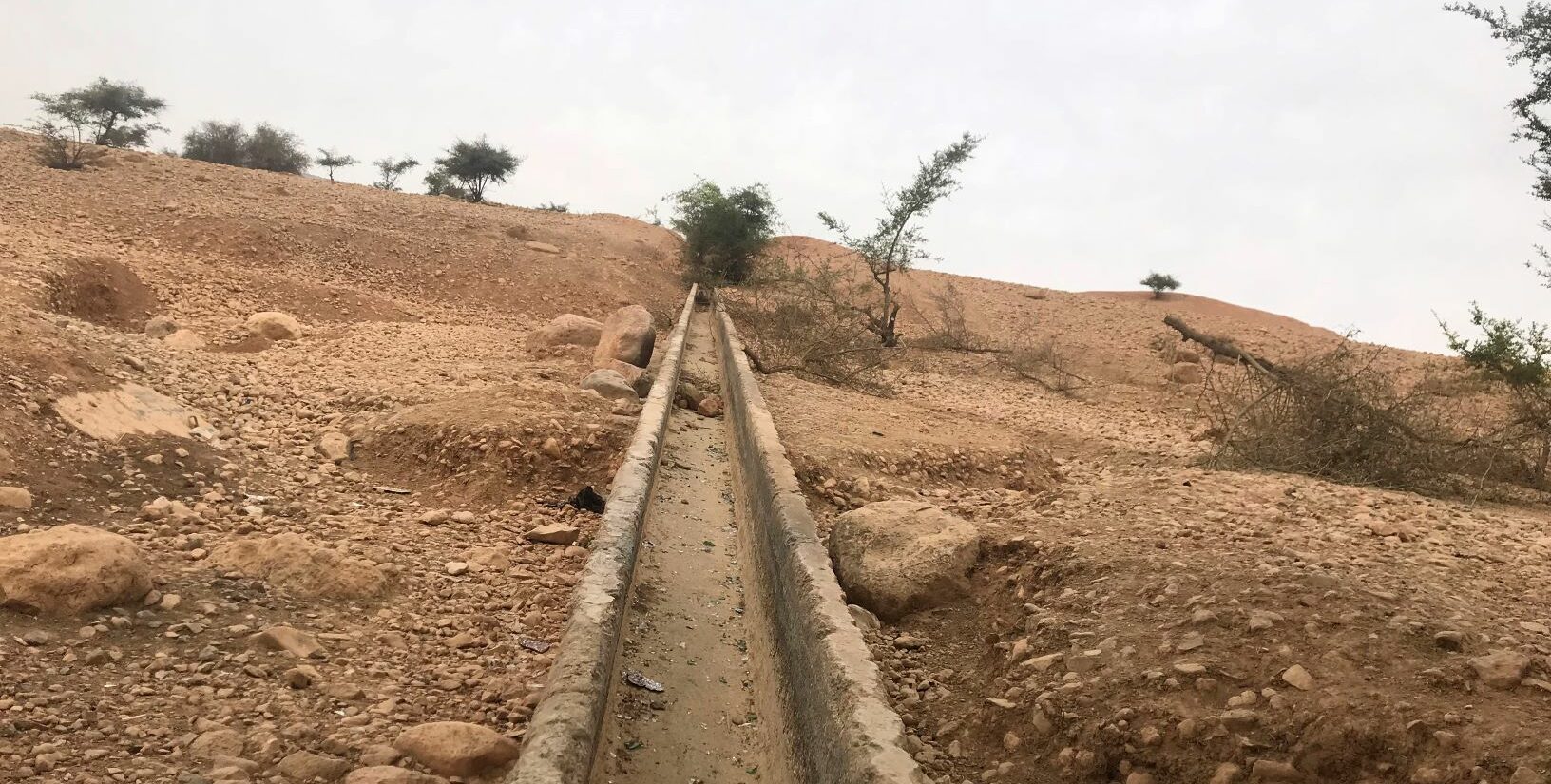
‘A temporary life’
The daily life of farmers in the Palestinian village of Al Jiftlik
Many of the fresh fruits and vegetables on European supermarket shelves come from Israel. However, a portion of these imports come from Israeli settlements in the occupied Palestinian territory (OPT). These settlements are illegal and have disastrous consequences for local Palestinian people and their economy. Human rights and international laws are being violated. Nonetheless, products from these settlements are being imported into Europe.
From the Dutch Customs Administration to the court
SOMO has been trying for years to ascertain the extent of this problem. We’ve been working on disclosing import data of the Dutch Custom and the buying practices of Dutch supermarkets.
In this online story, we bring together previously collected interview material and our ongoing research on the origins of fresh fruit and vegetables from Israel and the occupied Palestinian territory, in a story about farmers in the village of Al Jiftlik** and the day-to-day effects of an omnipresent Israeli occupation on life and on the economy.
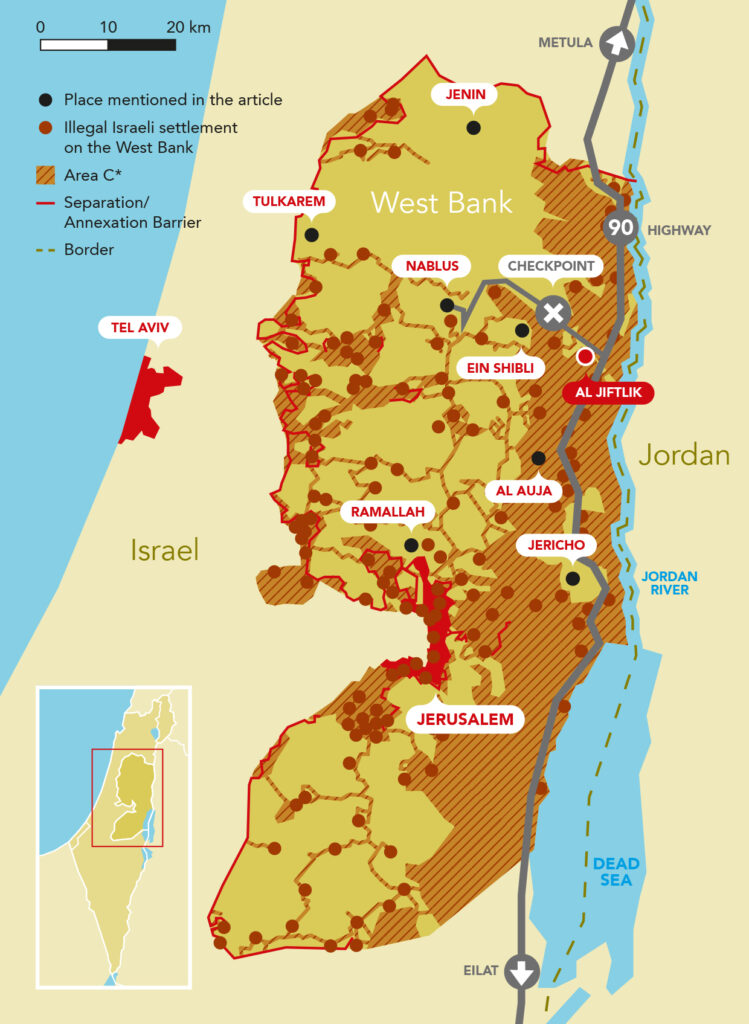
Photo: Frans Schupp/SOMO
Restricted movements
Al Jiftlik is located in so-called Area C(opens in new window) , a political-administrative unit which is fully controlled and governed by the Israeli military. All permits for buildings, streets and any other kinds of infrastructure are issued by the Israeli authorities. “I’ve been requesting a permit to clean my well for the past 10 years, to no avail. They don’t give you a reason, they just deny your request”, says farmer Abu Ahmed. “We even need a permit from the Israeli administration to access and work on our land (when it is not located directly next to the village-ed).”
“And we do get these permits, but only for a certain number of days. For example, I got the permission for tilling my land in March. Tilling takes three to four days, but I only got one day. During harvest time it is the same; I get a permit for a given number of days. We have 500 olive trees that need harvesting. This takes a long time, not just a couple of days. Also, we can only bring two people instead of the 35 we would need to get all the work done in the time we are given.”
Movement outside the village is severely restricted or uncertain at all times. Like their fields, Palestinian farmers cannot freely access roads to go to markets in neighbouring cities. Abu Ahmed explains: “If I wanted to go to Nablus, I could potentially be stopped at the Al-Hambra checkpoint(opens in new window) . It could be closed down for two hours. And after dusk, the checkpoint is always closed. I cannot move about after nightfall.” Because of this curfew, farmers cannot water their trees in the evening. “It used to take fifteen minutes to get to my land. Now, it takes over ninety minutes to get there. They control the time”, says Abu Ahmed.
“We are holding on to the hope that next year will be better, and the one after that even better. But I expect that if things continue as they are, some people might give up”, states Khalid, another farmer. “Life feels temporary here, nothing is long-term. Our income is very low, about ILS 85 a day (€20-ed). That amount of money does very little for someone who has 7 or 8 children and has to pay for health care, schools, universities or anything else.”
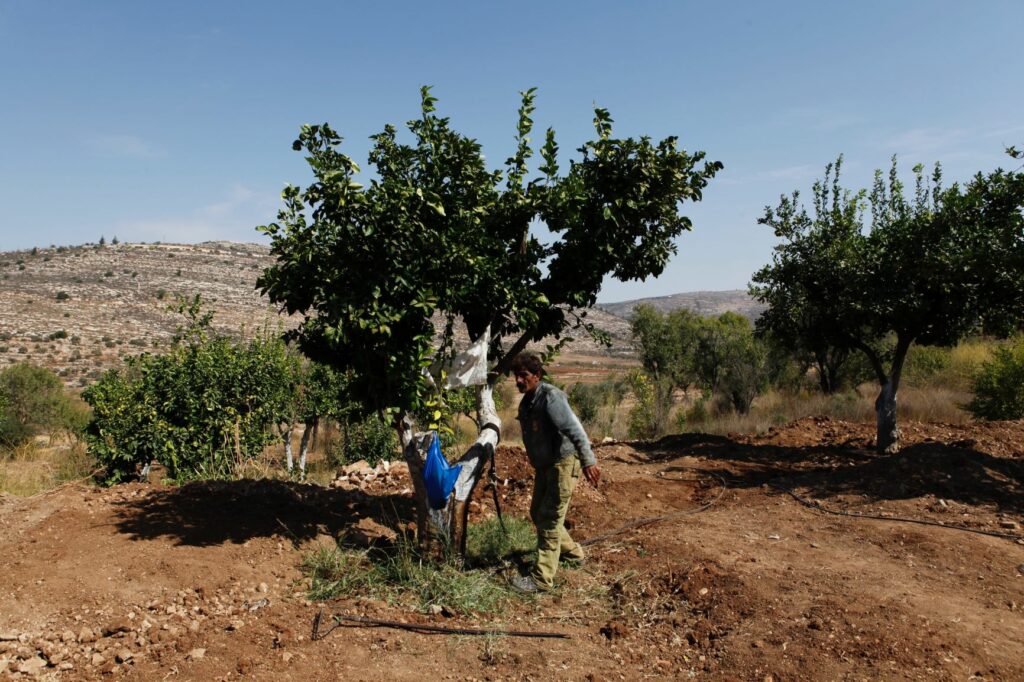 Photo: SOMO
Photo: SOMOLost reputation
Until the 1970s, the area around Al Jiftlik was known for its oranges and lemons. “Whether you went to the market in Nablus, Jenin, Tulkarem, or any other place, the citrus produce of Al Jiftlik and the Jordan Valley had quite the reputation”, says Khalid. “And until the 1980s there was enough fresh water to grow citrus. There was enough rainfall and we got fresh water from a canal that connected us to the village of Ein Shibli, 15 kilometres away. In the past, people even used to go on picnics there, at the Al-Auja spring.”
In the 1980s however, rainfall levels dropped. And to make things worse, in 1985 the water from Ein Shibli to Al Jiftlik was cut off. A new water network was established by Mekorot, the national Israeli water company. As research has shown(opens in new window) , Mekorot extracts water from Palestinian resources and supplies water to illegal Israeli settlements. “The Israelis built wells around the canal, leaving it dry”, says Khalid. Especially in the summer months, the water situation becomes very serious(opens in new window) . “We barely have enough drinking water in those months, let alone water for livestock and farming”, states Abu Ahmed.
“Mekorot built two water pipelines for Al Jiftlik, and so we have to buy the water from them. It costs up to 3 to 4 ILS per cup (€3 to €4 per litre-ed)”. Abu Ahmned estimates that it costs around €700 to water 1000m2 of land per year. “Drinking it wouldn’t hurt you, but it is not drinking water. It’s too salty. For certain crops, like lemons and oranges, the salt percentage is too high. They cannot survive on this saltier water.” As a result, many farmers resorted to uprooting their citrus trees and started farming vegetables and dates instead.
Around 2006, things further deteriorated for the Al Jiftlik farmers(opens in new window) . Prices for vegetables dropped dramatically. To survive, farmers shifted to growing date palm trees. These can endure higher salt levels, and the dates can be exported more easily than other fruits or vegetables, although export quantities remain low(opens in new window) and the process of exporting is difficult(opens in new window) .
What do we (not) know about the products sold by the largest Dutch supermarkets?
Khalid has also switched to date palms, like many other farmers in the village. Currently, he has 700 trees that are flowering and 700 that are not yet producing. Palm trees require five to six years to flower for the first time and start producing dates. Khalid’s date trees produce just enough income for him and his family of four: “My son has twins on the way. We are able to live without needing anybody, thank God, but my income isn’t enough to do more. We live modestly.”
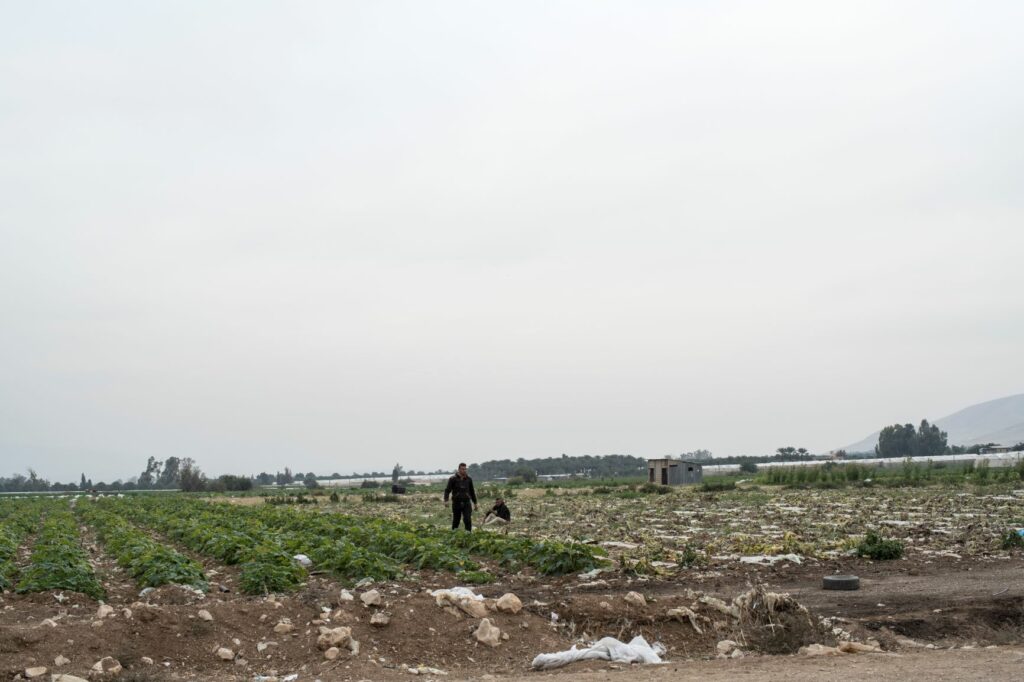 Photo: SOMO
Photo: SOMOClosed off from markets
In absolute terms, Al Jiftlik is very close to Palestinian cities like Jericho or Ramallah and close to Highway 90 that runs from the very north of Israel (Metula), straight through the West Bank, down to the most southern Israeli city (Eilat). However, the farmers of Al Jiftlik experience great difficulties in getting their fresh vegetables to the Palestinian markets. “Israeli custom take samples to test the vegetables we grow. They test and determine the amounts. We’ve been stopped and forced to go back home multiple times at the Israeli checkpoints, which many times has resulted in our products being spoiled. So we have to sell them for lower prices.”
Around Al Jiftlik, there are several checkpoints that might be closed off at any moment(opens in new window) . “If a vehicle is carrying vegetables and gets stopped for two to three hours…most of our cars do not have air conditioning and the heat and the wind affect the quality of the vegetables and then you have to sell them at a lower price”, says Khalid.
Summing up his troubles, Abu Ahmed puts it this way: “Water is of low quality, expensive, very scarce and in the summer months even absent. Prices for vegetables are low and our fields are difficult to access if they are not directly located in the village. I think it’s better being a worker than being a farmer these days. Instead of making money, I’m running out of it”.
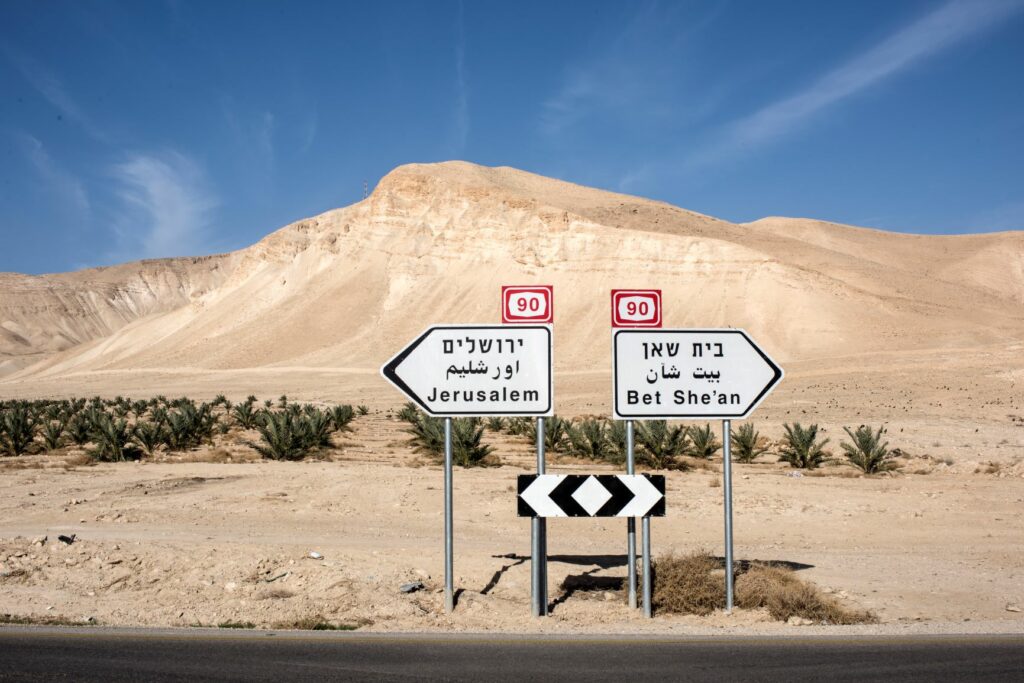 Photo: SOMO
Photo: SOMONo easy decisions
It is not surprising that many farmers have stopped working their own lands. There are no reliable statistics, so Khalid can only estimate how many farmers have quit working their land: “I think that 20-25% of people from Al Jiftlik work in settlements. It’s not an easy decision though. Nobody would abandon their own land or business to work in a settlement. Abandoning your land means that you are helping the occupation expand. This is why people are holding on to their patience. We’ve had olive trees for thousands of years. People love their trees.”
“But when you need a higher income, what can you do?” asks Khalid. “So people give up and leave their land and go work in an Israeli settlement or somewhere in Israel because you need to survive. The Israelis entice the Palestinian workers with money.” Abu Ahmed adds: “All of this is indirect displacement. They pressure people by controlling the water and the electricity. They are telling you to leave but in an indirect way. The war between us is a war over land, it is not a religious war.”
“Above all money and a better income, however, is freedom. Freedom is more valuable than money. To go to Nablus without worrying about whether the checkpoint is closed or not, or to take a sick person to get treatment. Despite all the difficulties we face, we still stand tall. If need be, we can live on just olive oil and thyme, bread and onion. The people are here and we are resilient.”
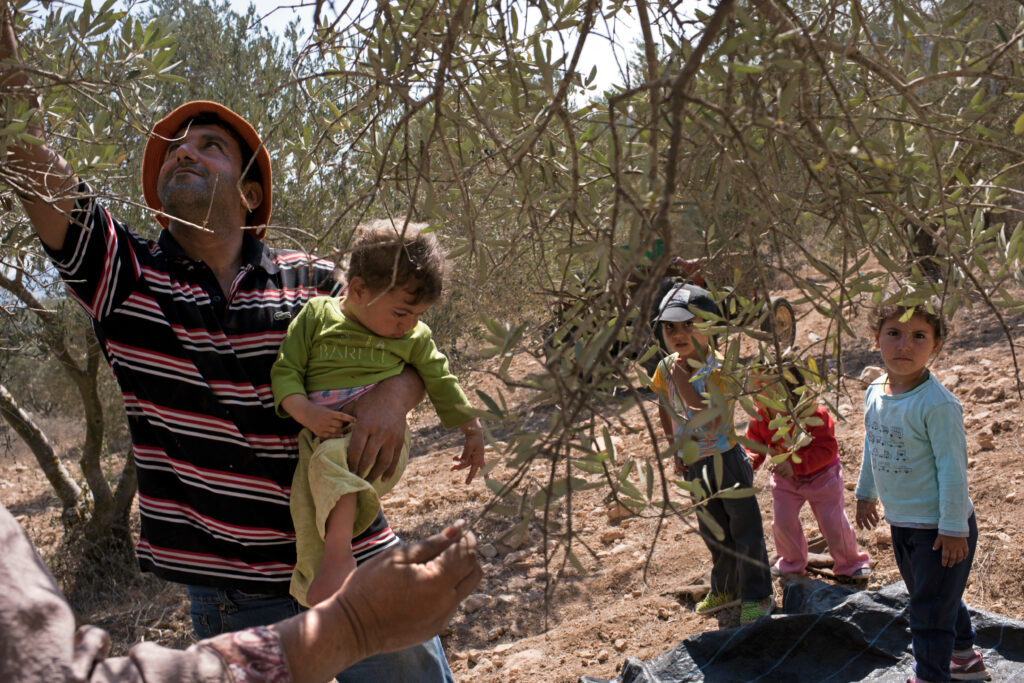
** For this story we used the transcripts of interviews held with 25 farmers in and around Al Jiftlik. For their safety and to increase readability, we created two personas from all the interviewees to tell their communal story: Abu Ahmed and Khalid. Where necessary, we checked information against reports from NGOs and governmental organisations like the UN.
Do you need more information?
-
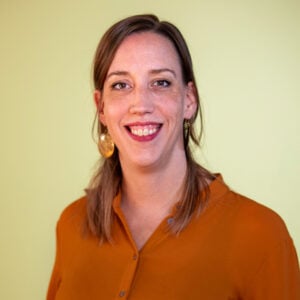
Lydia de Leeuw
Researcher -
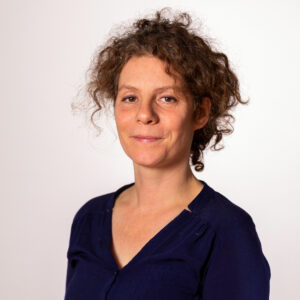
Jenny Pannenbecker
Communications Officer
Related news
-
 Dutch State accused of failing to prevent genocidePosted in category:Case
Dutch State accused of failing to prevent genocidePosted in category:Case Lydia de LeeuwPublished on:
Lydia de LeeuwPublished on: -
-
 The Counter: strengthening the fight for climate justice around the worldPosted in category:Long read
The Counter: strengthening the fight for climate justice around the worldPosted in category:Long read Luis ScungioPublished on:
Luis ScungioPublished on:


